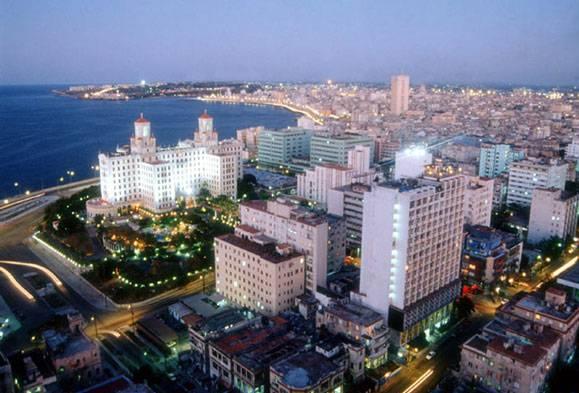The Republic of Cuba
 The country's territory - 110.86 sq. km. Capital is Havana (2.15 million people). Administrative and territorial division has 15 provinces and one special municipality Isla de la Juventud. Population - 11.24 million people.
The country's territory - 110.86 sq. km. Capital is Havana (2.15 million people). Administrative and territorial division has 15 provinces and one special municipality Isla de la Juventud. Population - 11.24 million people.
Official language is Spanish. Religion - Catholicism (65% of population are Catholics), Protestants (about 4.5%).
Currency- peso = 100 centavos.
National Holidays: January 1 – the Independence Day (1959), May 1 – the International Workers' Day, July 26 – the Day of National Rebellion (1953), 10 October - the beginning of the struggle for Cuban independence from Spain (1868).
Polity. The current Constitution was approved by referendum on 15 February, 1976, and entered into force on 24 February, 1976. In 1992 and 2002, into the Constitution were made several amendments.
The supreme body of state power is the National Assembly of People's Power, consisting of 614 members, elected for 5 years. From its members is formed the State Council (composed of 31 people) - a permanent body that represents the Assembly in session (held twice a year). The State Council is accountable to the National Assembly. The National Assembly of People's Power appoints the members of the Council of Ministers - the highest executive and administrative body.
In 2008 were held elections to the National Assembly of the next, 7th convocation. At its first session, as the head of state - the President of the State Council, the Council of National Defense and the Council of Ministers - was elected Raul Castro, who changed Fidel Castro in office, who was there since 1976. Ricardo Alarcon de Quesada was re-elected as the President of the National Assembly of People's Power.
Political and social organizations: In the country is a one-party system, the Constitution enshrines the leading role of the Communist Party of Cuba (verse 5). The First Secretary of the Communist Party of Cuba is Raul Castro, who succeeded Fidel Castro on following VI Congress in April 2011.
Communist Party - 840 thousand people, The Union of Young Communists - over 456 thousand people, Trade Union of Center Workers - about 3.8 million people, the Committees for the Defense of the revolution - more than 8 million people, the Federation of Cuban Women - 3.6 million people.
Media. Cuba has five national television channels - "Kubavison", "Tele-Rebelde", "Multivison", "Edukativo", "Edukativo II" (the last two are educational) and the cable channel "Kubavison Internacional." Radio Network includes more than 90 radio stations. Is running the internal computer network Intranet. There are published 3 national newspapers - the daily "Granma" and "Juventud Rebelde" and the weekly "Trabajadores", there are also several other weeklies. Totally, there are published 809 newspapers and magazines (408 - on paper, and 401 - in the electronic version, of which 242 come exclusively online).
Economy. In 2011, GDP growth was 2.7% (in 2010 - 3.1%). In terms of value (in current prices) GDP exceeded 65.9 billion cubic meters of pesos.
Tourism industry develops rapidly. The number of foreign tourists, who annually visit Cuba, is about 2.7 million people. Important sectors of the national economy are the pharmaceutical industry and biotechnology.
The basis of the merchandise exports of Cuba are nickel, tobacco, sugar, medicines and products of biotechnology. In the nomenclature of imports are petroleum and petroleum products, food, machinery and technical products. The main trade partners of Cuba - Venezuela, China, Spain, Canada, USA, Brazil, Vietnam and Russia.
Inflation rate is 1.4%. Unemployment persists on the low level of 2.5% of the economically active population.
Foreign policy. Cuba - a member of the Non-Aligned Movement, the Association of Caribbean States (ACS), the Latin American Economic System (LAES), the Latin American Integration Association (LAIA), the Community of Latin American and Caribbean States, is an observer in the Caribbean Community, is involved in the Ibero-American Forum.
Havana has consistently advocated to the formation of a more just and democratic world order, based on multilateralism.
Cuba is making efforts to overcome the economic embargo from the USA and the integration into the world economy through the development of multilateral cooperation.
























